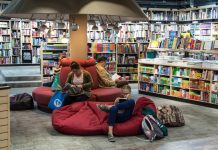“The more you read, the more things you will know. The more you learn, the more places you’ll go.” – Dr. Seuss
A child’s education begins at birth with external stimuli from the outside world. The impact of early childhood education on our children’s ever developing minds, especially between the ages of 0 to 5, is a huge factor in their continued successes throughout life. One area of significant development during these critical years is that of a child’s language and literary skills. Children who learn to love to read not only have a beautiful, imaginary world opened up to them, but also have measurably different successes in school, work, and life than others who do not possess proficient reading abilities.
As parents, teachers of our own children, and contributing members of the society in which we live, we need to become advocates for early and continuing literacy among our neighborhood children and adults.
“There is no substitute for books in the life of a child.” – Mary Ellen Chase
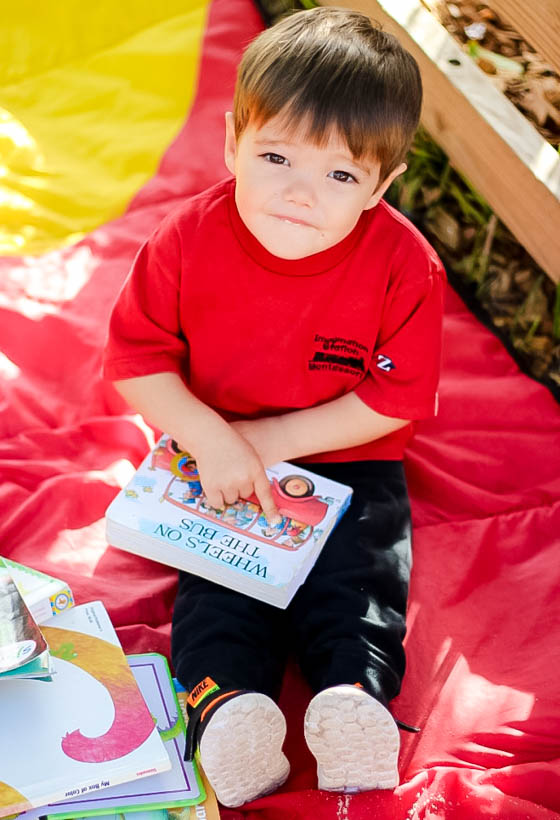
In this day and age, 1 in 4 children grow up not learning how to read. This statistic may seem surprising, but when one considers that there is an evident 30 million-word gap between higher and lower income children by the age of 3, it becomes easy to see how even with school interventions the disadvantage to a large portion of our population in their homes makes illiteracy possible.
Unfortunately, this same gap is still evident at ages 9-10 in 3rd grade after having been in a formal school environment for 3 years. Vocabulary use at age 3 is strongly associated with reading comprehension at age 10.
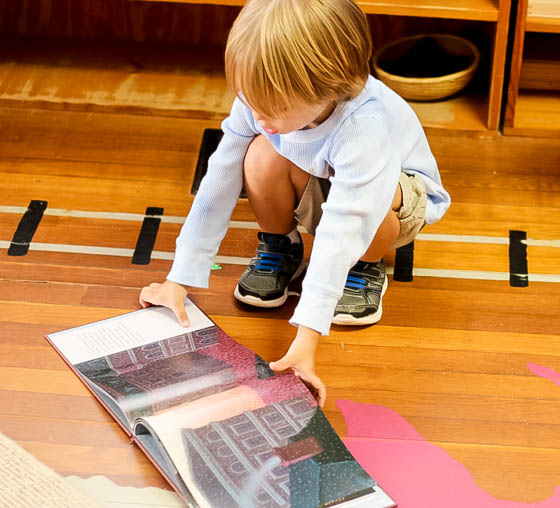
“To learn to read is to light a fire; every syllable that is spelled out is a spark.” – Victor Hugo
As our children begin to venture outside of our nest and eventually become a part of a larger public (or even private) school system, we as parents become more aware of the educational abilities of our children and their peers. We begin to see and experience the language and literacy gaps that exist in all schools between the higher and lower income children.
It may seem unbelievable to many of us that in today’s time there are still many illiterate adults, and children and teens who will continue that cycle. It would seem that with a government funded public education system this could not possibly be the case here in our industrialized nation, but unfortunately it is.
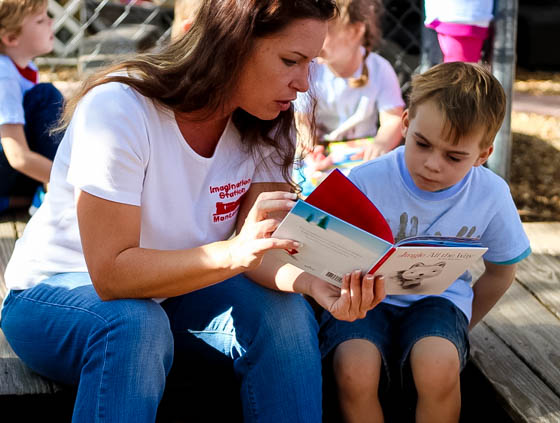
Statistics from the U.S. Department of Education and the National Institute of Literacy show:
- 32 million Americans cannot read; that is 14% of the adult population
- 21% of adults read below a 5th grade reading level
- 19% of high school GRADUATES cannot read
Now how is that? How is our school system granting diplomas to young adults who cannot read proficiently? What is happening in our school systems and in our homes that we are allowing children to pass from grade to grade AND RECEIVE a diploma when they cannot read? How is it beneficial to these children that they are granted a diploma, but cannot read or fill out a job application? Are we not doing a large part of our population a disservice by allowing this to be the norm? These are the tough questions we need to be asking on both a local and national level. This is the education of our children and the future of our population we are talking about.
“Today a reader, tomorrow a leader.” – Margaret Fuller
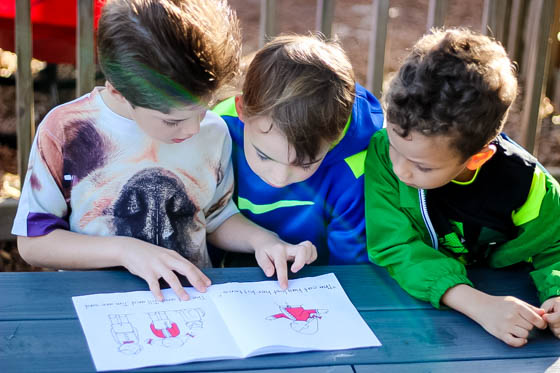
Further, according to the statistics compiled by Begin to Read, the futures of these illiterate youth are deplorable:
- 2/3 of students who cannot read proficiently by the end of 4th grade will end up in jail or on welfare
- 85% of juveniles in the delinquency court system are functionally illiterate
- 60% of prison inmates are illiterate
The Department of Justice States, “The link between academic failure and delinquency, violence, and crime is welded to reading failure.” These statistics demonstrate the need for early literacy programs and early childhood interventions in our most vulnerable populations. A key factor in keeping our children out of trouble is keeping them engaged academically both at school and at home.
Access to early childhood education is a key factor for this welfare population, especially because there are greater success rates for these children who learn to love learning early on. Literacy in particular is a developed or learned skill; illiterate parents pass along illiteracy.
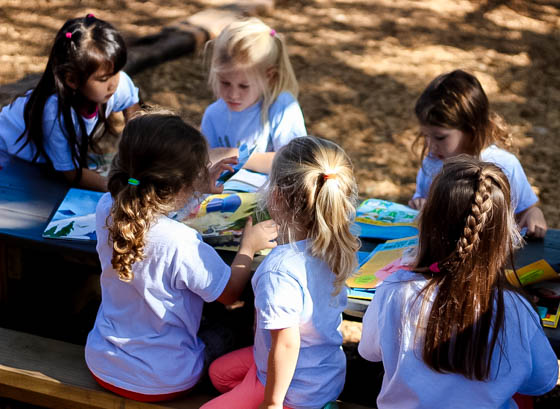
Granting access to high-quality preschools early on is a significant factor in the development of literacy skills in the low income population. Although children from lower-income families are unlikely to reach the vocabulary abilities of the children from the higher income “professional” families, they are at least more likely to be more successful in school with early childhood education and preschool than without.
This is because children pick up their vocabulary skills at home, listening to parents or caregivers talk both to the children and amongst themselves. Studies have shown “86%-98% of the words recorded in each child’s vocabulary consisted of words also recorded in their parent’s vocabularies.”
“Once you learn to read you will be forever free.” – Fredrick Douglass
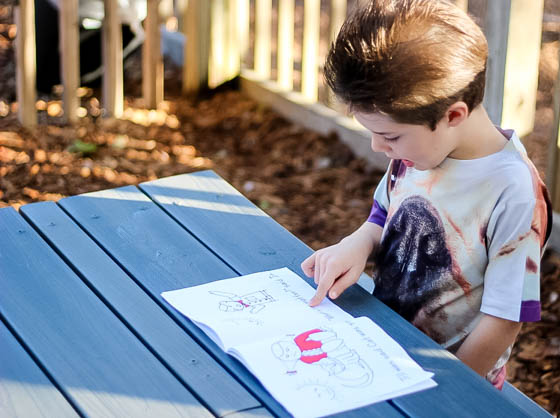
The Every Child Succeeds Act signed into law by President Obama on December 10, 2015 has a large literacy component. This law provides protections for our disadvantaged and high need students, and supports local planning and strategizing to combat illiteracy and failing school systems. Further, the act continues investing in and supporting expansion of access to high-quality preschools.
There is also a compensation component for teachers who participate in extended school days in lower-performing schools. Many states and counties have put the extended school days into effect, and the extra hour of instruction is specifically for “intensive reading instruction” by teachers deemed effective in teaching reading.
“Reading should not be presented to children as a chore or duty. It should be offered to them as a precious gift.” – Kate DiCamillo
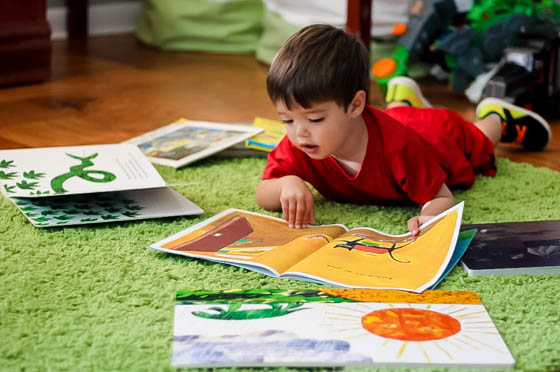
But children’s literacy should not be a “problem” to be addressed by our schools. It is a love we as parents should be encouraging and developing well before our children are even school age. To teach our children to love reading, we need to read to our children EVERY DAY. And this reading needs to begin early! Our babies’ brains are developing so quickly from birth; neurologically, infancy is a critical period because cortical development is influenced by the amount of central nervous system stimulation.
Further, experience is sequential, basically meaning that our children learn to love what they are taught. Studies have shown that once our children outgrow the infancy stage and become more independent, their past experiences will influence their direction and what new opportunities they notice and choose. If we want our children to choose reading, START EARLY.
“Children are made readers on the laps of their parents.” – Emilie Buchwald
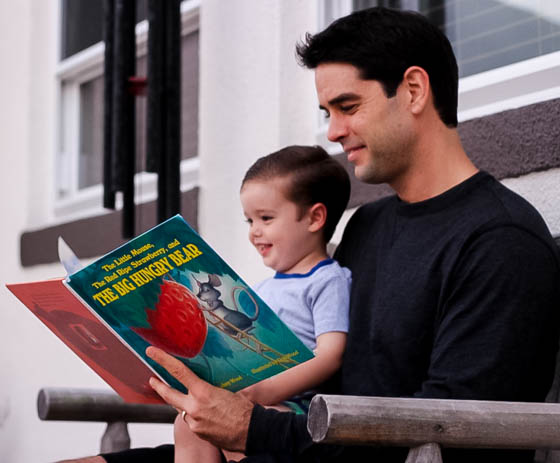
Children who are read to at home on a regular basis are at a substantial advantage to those read to less frequently. Reading to a child only 3-4 times a week significantly increases their odds of letter recognition and sounds at an early age. According to the Educational Testing Services, not only does reading improve children’s reading and reading comprehension skills, but also significantly impacts their number recognition and counting abilities, and eventually these same children have much higher math skills.
“There is no substitute for books in the life of a child.” – Mary Ellen Chase
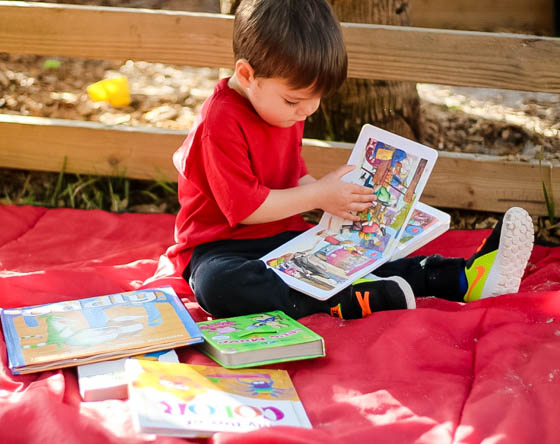
Making reading a priority in your home from early on will have a significant impact on your child’s education and future. Children tend to be drawn to what they know, so not only should we be reading to our infants and making story time a regular part of our day, but children benefit by seeing their parents read to themselves as well. Children from homes with a wider selection of reading materials tend to become better readers.
“Fill your house with stacks of books, in all the crannies and all the nooks.” – Dr. Seuss
Reading is a practiced skill. Reading to your children will not only teach them to begin recognizing letters, but it will teach them tone, inflection, vocabulary, and punctuation. It is also an incredible bonding experience where you set everything aside to allow you and your child some quiet time to delve into a book. Establishing this connection of joy, excitement, and closeness between you and your baby or toddler while reading will teach him to associate these feelings of happiness with reading and thus create a more engaged and excited reader.
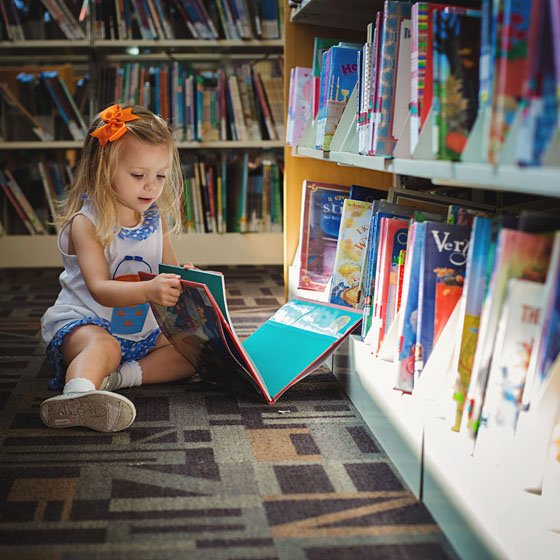
During infancy and toddlerhood you are the reader, but as time passes your child will soon want to read to you. Make sure to listen! Do not allow yourself to do chores while your child reads; be there listening, encouraging, assisting with a difficult word… you need to let your child know how important their reading is to you so it will become just as important to them.
“I feel the need of reading. It is a loss to a man not to have grown up among books.” – Abraham Lincoln
Reading to children should be a family affair. Older and younger children should be read to together… younger children are learning so much information about the world around them, including numbers, letters, shapes, and animals, while older children are learning vocabulary words, sight words, and a variety of phonics patterns while listening to you read.
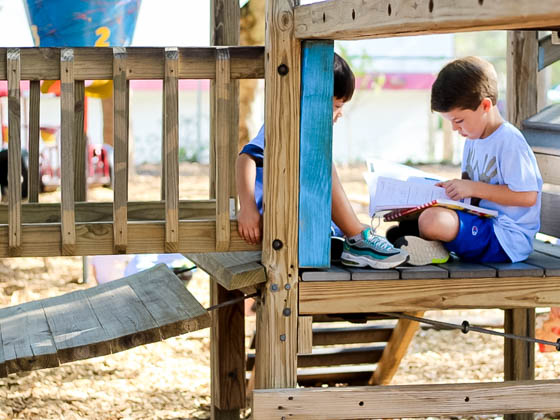
The great thing about reading is there are no prerequisites or ideal conditions for it… all you need is a book and your baby. Read in the park, in the waiting room at the doctor’s office, at night before bed, or in the morning while breastfeeding. As your child gets older the portability of their books will become a blessing and they can read to you on the way to school, soccer, or swim lessons. Encourage your children to read ANYTIME and ANY PLACE! We cannot change the world literacy problem right here, right now, but we can start small, start at home, and support the movements to solve childhood and adult illiteracy in our communities.
Photo Credits: Kristin dePaula, Ashley Sisk
References: U.S. Department of Education, Begin to Read, KidsHealth, National Education Association

















